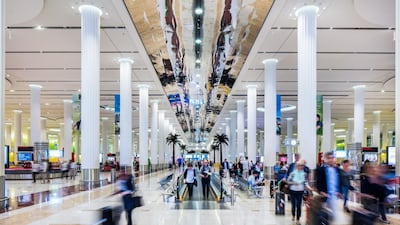There is no doubt that plastic has transformed our world. In the 112 years since it was invented, it has been used in almost every aspect of our daily lives, from transporting food and water to providing a cheap, durable material for the manufacture of everything from planes and cars to carpets. However, the 8.3 billion tonnes of plastic pollution produced globally since 1950 – particularly the single-use kind – have ravaged our planet. On average, each plastic bag is used for just 12 minutes and yet takes up to 1,000 years to decompose. Every year, 1.1 million birds and animals are killed by pollution from plastic. It is time for nations, companies and consumers to recognise the impact their plastic use is having on our environment. Dubai Airports is one of those organisations stepping up to the challenge. From next year, the world’s busiest airport will ban single-use plastics, including knives, forks, bags and straws. The importance of this move cannot be overstated. It takes a significant world player to set an example for others to follow.
Dubai International Airport, which welcomes more than 89m travellers per year, is already putting good sustainability practice into use. The airport recycles 43,000 tonnes of paper, glass and other waste each year to limit its environmental impact. But this is the next great stride, making it a role model for airports across the globe and hopefully encouraging millions of passengers to reconsider their own habits. “By banning single-use plastics at the airport, the UAE is able to send a strong message to the 89 million-plus people who pass through our airports annually and act as leaders in the global fight against plastic pollution,” said Habiba Al Marashi, chairwoman of the Emirates Environmental Group. In the short term, this might not make good business sense but at its heart is genuine ecological concern. In the long term, there could be considerable savings in terms of costs and plastic waste.
Awareness of plastic pollution is growing across the UAE, with supermarkets, restaurants and businesses considering their own policies and plastic usage. Some have already banned straws and started charging for plastic bags. Other nations such as Canada – which has just banned single-use plastic altogether – have been more aggressive in enforcing those policies. A YouGov survey last year found two-thirds of UAE residents are concerned about plastic waste. It will greatly encourage them that big international institutions like Dubai Airports are confronting this problem – not just in word but deed.

